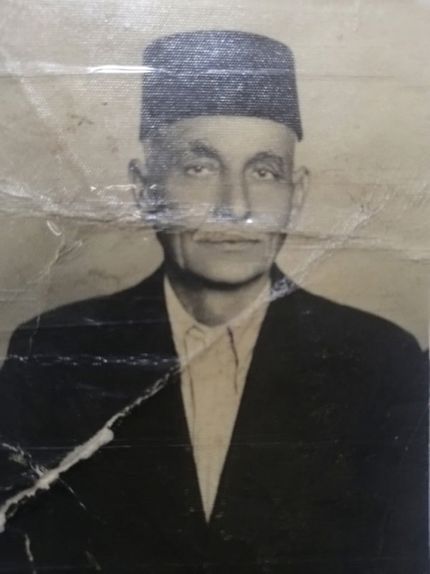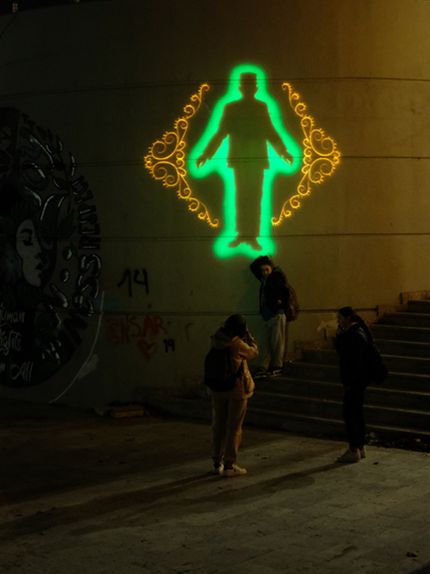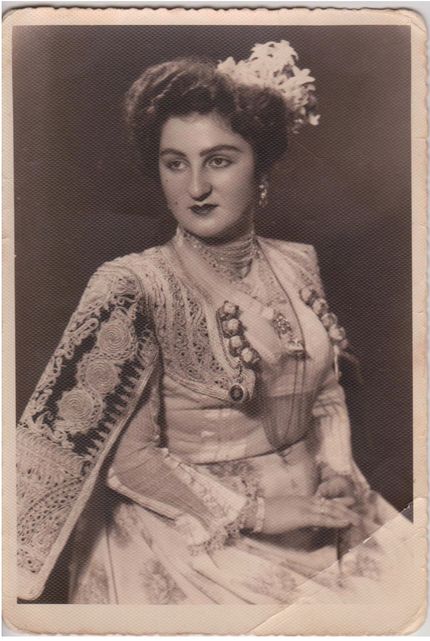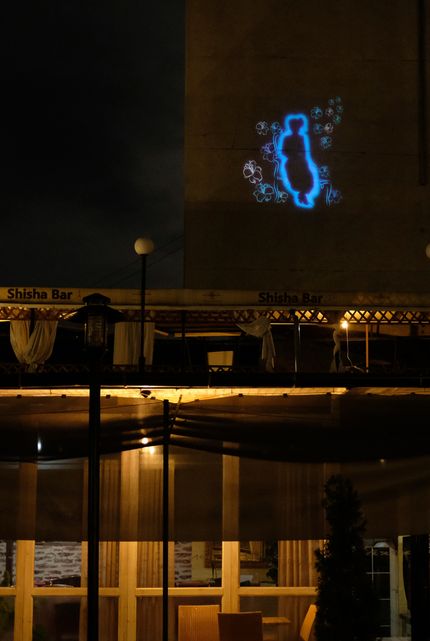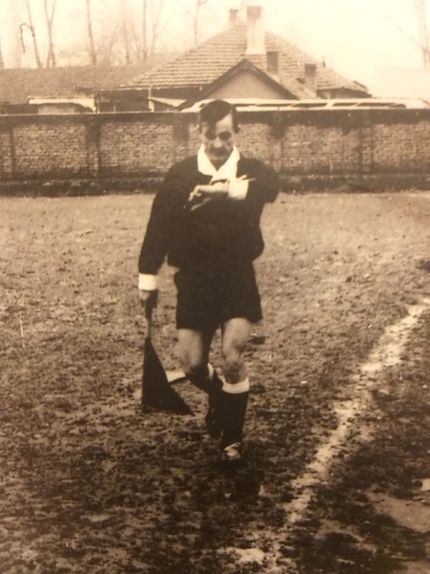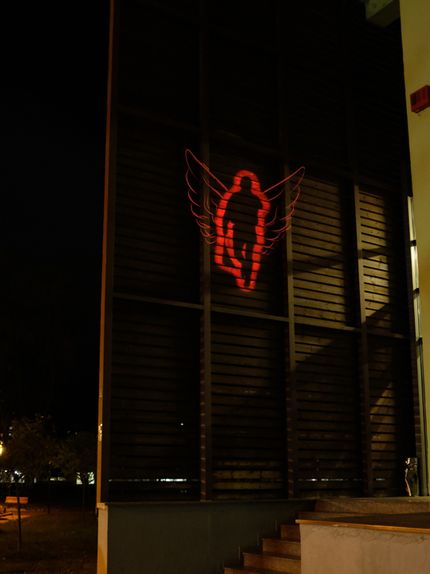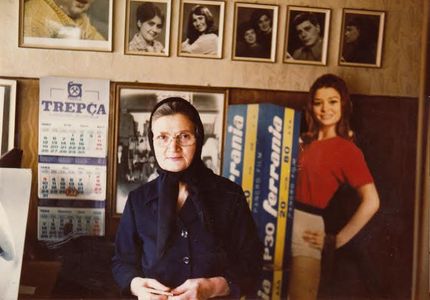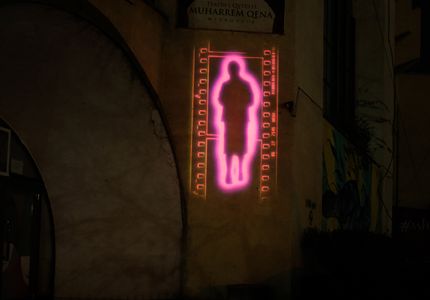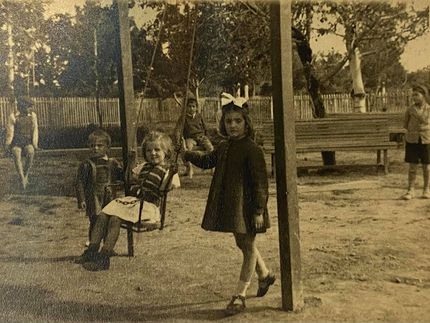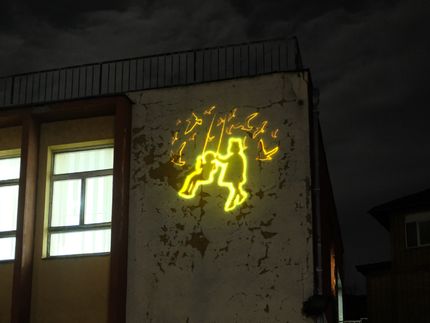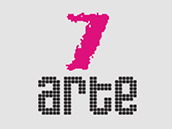Njëherë e njëkohë në një qytet të vogël u lind një vajzë me sy të kaltër, në një familje që kishte dy nëna e një baba. Në atë botë martesat bigame ishin krejt të zakonshme, dhe dy nënat jetonin në paqe e me shumë respekt për njëra tjetrën. Vajza e vogël rritej pa zë në një familje të zhurmshme në atë botë kur koha ishte e ngadalët e sillej e pshtillej nëpër dhomat ku nënat ushqenin, thurrnin, qepnin, kujdesesishin për burrin e tyre, prisnin mysafirë, thanin rroba nën pullaz ku thahej mishi e perimet. Në kohë të ngadaltë, vajza rritej e bashkë me të edhe bukuria e saj që kishte filluar të merrte nam nëpër lagjet me kalldrëm. Ajo kohën e saj të preferuar e kalonte me miken mbi drurin, sipër lumit që e ishte afër shtëpisë. Një ditë, atypari kaloi një zotëri me kapele dhe pëlqeu vajzën sykaltroshe. Zotëriu që ishte dhjetë vite më i madh se ajo në moshë, u magjeps nga bukuria e saj dhe që nga ajo kohë, për dy vite rresht, e kërkoi dorën e saj për martesë. Në kohën kur ajo u bë gjashtëmbëdhjetë vjeçe vajza u bë nuse, e nusja u bë grua dhe gruaja solli në këtë botë katër frymë të njoma. Koha tani ikte shumë shpejtë, për gruan e re me duar plot, me ushqime, kërkesa, përqafime, e rrëmujë dhomash nga loja e fëmijëve të saj. Në një ditë ajo nuk u ndje mirë, por e morri vetën e vazhdoi rutinën e saj. Kaloi pak kohë dhe plogështia iu kthye pas, por prapë obligimet prej një nëne të re me një tufë prej katër fëmijësh nuk e lanë të pushonte. Dhe pas ca kohësh ajo filloi të ishte edhe më keq... dhe në një ditë me re, kur era fryente e shiu nuk po shpërthente dot, ajo u shtri në shtrat për të mos u zgjuar më. Koha ndaloi për të, kur ajo ishte vetëm njëzet e shtatë vjeçe. Zonja Florie Ponosheci Dobroshi ndaloi së frymuari, duke lënë pas një vajzë nëntë vjeçe, me tre vëllezërit e saj (gjashtë, katër dhe dy vjeç). Ajo nuk pati mjaftë kohë në këtë botë, e kohë me të nuk patën as fëmijët e saj. Mungesa e saj ishte gravuar në shpirtat e tyre, në secilin cep të shtëpisë, në secilën lagje të qytetit. Malli i madh i mungesës së saj për të gjithë, bënë që zotriu me kapelë të shpërngulej për në qytetin e Mitrovicës, për të filluar nga e para. Në Mitrovicë, fëmijët e saj u rritën, u bënë gra e burra, nëna e baba, gjyshër e gjyshe… dhe drita e nënës së tyre u pëjetësua në vajzat e djemtë, në mbesat e nipat që u shtuan nga shkëndijë e shpirtit të saj…
Teksti nga Nora Prekazi Hoti
Once upon a time, in a small town, a blue-eyed girl was born to a family which had two mothers and one father. In those times, bigamous marriages were completely common, and the two mothers lived in peace with lots of respect for each other. The little girl was growing silently in a noisy family, in that world where time moved slow and swirled through the rooms in which mothers were feeding, weaving, sewing, taking care of their husband, hosting guests, drying clothes under the roof where meat and vegetables are dried. In the slow times, the girl and so did her beauty which was getting a reputation in the cobbled neighbourhoods. She spent her favourite times with her friend, above the river nearby her house. One day, a gentleman with a hat passed by and took a liking to the blue-eyed girl. The gentleman was ten years older than the girl, he was captivated by her beauty from that day, and for two years in a row, he asked for her hand in marriage. At the age of sixteen the girl became a bride, the bride became a woman, and the woman brought to life four young lives. Time was flying by now, for the young woman whose hands were full, with meals, demands, embraces, and messy rooms from her children’s games. One day she did not feel well, but she retook herself and continued her routine. A little time went by and her weariness came back, but again her duties of a young mother with a bundle of four children did not let her rest. And after a while, she began to feel worse…and on a cloudy day, when the wind was blowing and the rain wouldn’t set off, she lay on the bed only to never rise again. Time stopped for her when she was only twenty-seven years old. Mrs Florie Ponosheci Dobroshi stopped breathing while leaving behind her nine-year-old daughter with her three brothers (six, four and two years old). She did not have much time in this world; neither did her children have time with her. Her absence was engraved in their souls, in each corner of the house, in each neighbourhood of the town. The longing for her by everyone made the gentleman with the hat move to the city of Mitrovica for a fresh start. In Mitrovica, her children grew, became women and men, mothers and fathers, grandfathers and grandmothers…and the light of their mother was embodied in the daughters and sons, in the nieces and nephews that grew from the sparkles of her soul…
Text by Nora Prekazi Hoti
